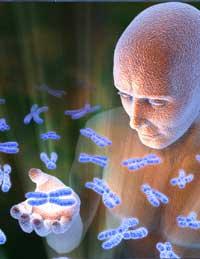Genome for all?
2001/05/08 Carton Virto, Eider - Elhuyar Zientzia

Graham Cameron defends a public database so that the managers of existing databases, driven by the scarcity of money, start asking for remuneration and genetic information is not in the hands of the commercial sectors. Researchers in the genome area want to join this goal and have launched a campaign for free databases. With this, they have claimed that the Human Genome Project involves biomedical benefits for all and that, incidentally, they highlight public databases, since only 50% of people who are engaged in biomedical research know and use them.
At the same conference, Benedicte Callan, of the Organization for Economic Cooperation and Development (OECD), said that the limitation of databases is also a headache for the private sector. In the words of the head of the working group of Genetic Inventions, Rights and Intellectual Property Licenses, the agreements signed by large pharmaceutical companies such as Novartis, Bayer and GlaxoSmitKline for the exchange of patented information are an example of this. Through these commercial societies, while protecting themselves, they can preserve the patented genes "except" for public sector researchers.
Black ghost
To patent a gene it is not enough to present the sequence, but it is also necessary to know its biological function, since it requires the utility to patent anything. But from there all genes enjoy the same legal protection as all patents. For example, anyone who wants to investigate in a patented gene must pay the owner. Suppose you find that the X gene produces X disease and patents the gene. If two years later I want to find a cure for this disease, you can't stop the investigation, but I have to pay for the gene to be used in the research. The laws of most states offer this total protection to all patents, including genes, but it is clear that a gene is not a washing machine. Also, is it possible to patent genes? Without clarifying the basic debate, some propose changing the laws and preparing specific rules for genes, but it does not seem that for the moment this path is addressed.

Gai honi buruzko eduki gehiago
Elhuyarrek garatutako teknologia



